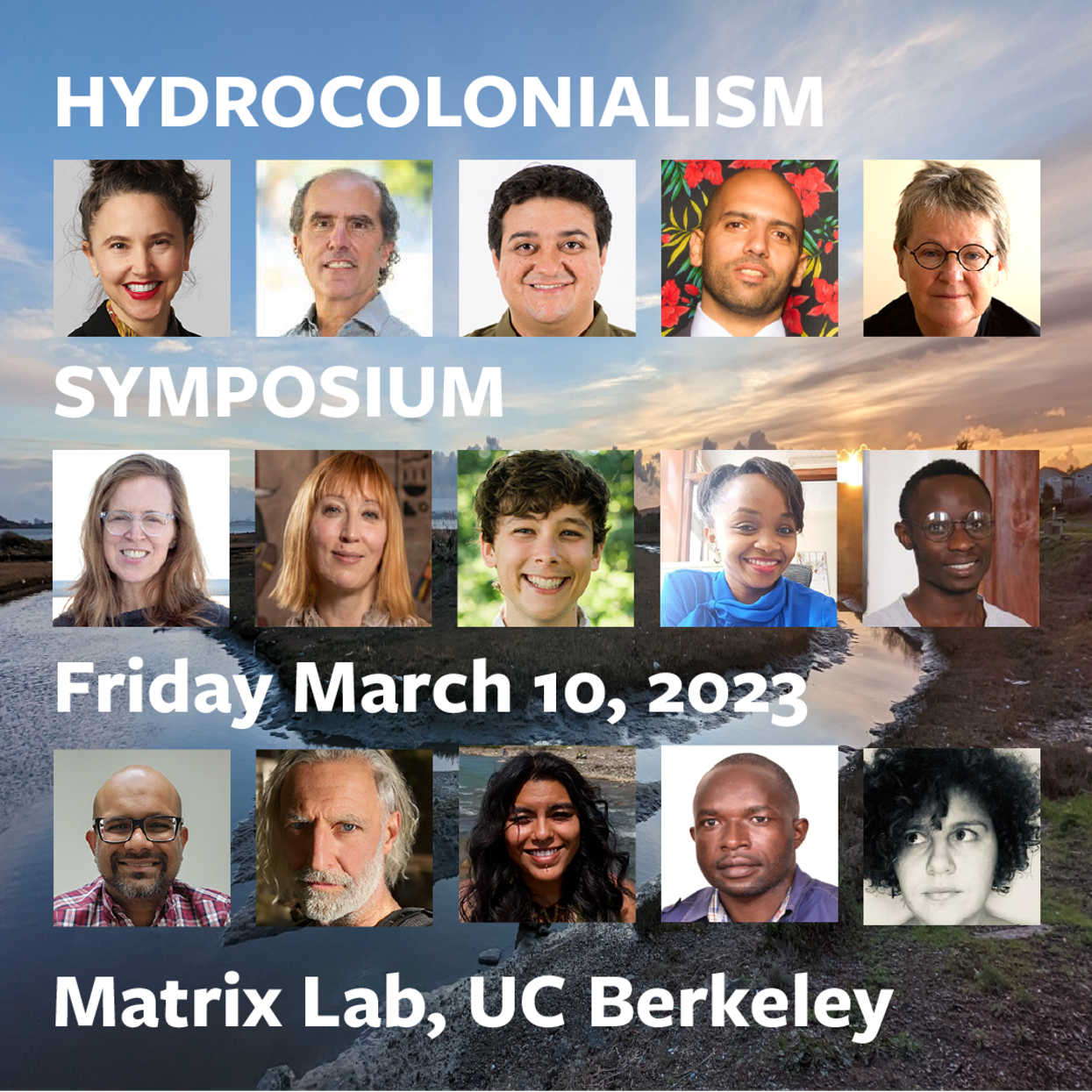Hydrocolonialism Symposium

Image: Featured speakers for Hyrdocolonialism Symposium at Matrix Lab, UC Berkeley, March 10, 2023.
Co-presented with the Department of Art Practice, with support from the Haas Scholars Program.
Featuring: Katie Anania (University of Nebraska-Lincoln), Craig Cohen (UCSF), Mina Girgis (UC Berkeley), Mahmoud Hassan (Fayoum University), Isabel Hofmeyr (New York University), Rita Lucarelli (UC Berkeley), Mercy Mueni (TMWDP), Ibrahim Mwakare (TMWDP), Greg Niemeyer (UC Berkeley), Xitlaly Olivera (UC Berkeley), Patrick Owuor (York University), Sera Young (Northwestern University) and many more TBA.
Find more information, including link to register for the symposium, here!
Water is the frontline of climate change, and competition for water resources increases in areas where water is already scarce. In Africa, several current major foreign water infrastructure development projects are displacing local residents and their water heritages in favor of planned cities, industrialized agriculture, and hydroelectric power stations for energy exports. Such developments repeat past colonial legacies and patterns of extraction ranging from Ancient Egypt to Manifest Destiny. If data is the frontline of human consciousness, then it follows that data about water would be a prime tool to measure and change water regimes to support water conservation and security both locally and globally.
Our one-day Hydrocolonialism symposium brings water scholars from several universities together with indigenous experts addressing hydrocolonialism in Fayoum (Egypt), Makueni County (Kenya) and in Oaxaca (Mexico).
It also serves as a disciplinary nexus connecting the fields of global health, biological anthropology, new media, data science, art practice, music, and hydrology to study the impact of global capital on local ecologies from technical, anthropological, and humanistic points of view. The purpose of this approach is to reach decision makers and affected parties with tools for more equitable and sustainable outcomes that balance resources and reduce displacement. This approach also situates directly affected humans at the center of the work.
Accessibility
The event is free and open to the public. This event will be held in person with a simultaneous Zoom livestream. Please contact info.bcnm [at] berkeley.edu with requests or questions.
With the consent of featured speakers, all recorded videos will be available on the BCNM YouTube channel immediately after the event and event transcripts will be posted to this page one month after the event. We strive to meet any additional access and accommodation needs.
BCNM is proud to make conversations with leading scholars, artists, and technologists freely available to the public. Please help us continue this tradition by making a tax-deductible donation today. If you are in the position to support the program, we suggest $5 per event, or $100 a year.
